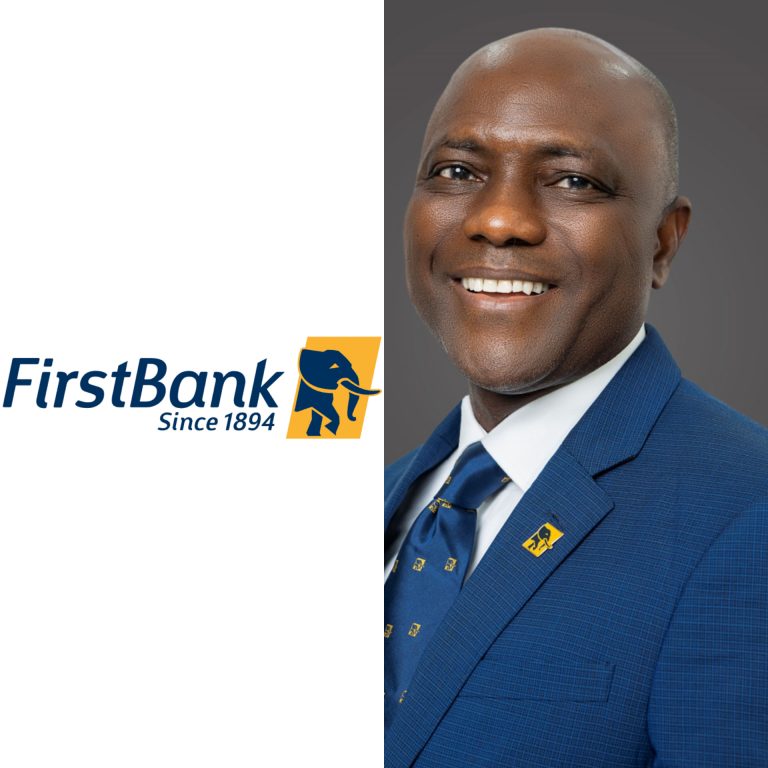...To get all news updates, Join our WhatsApp Group (Click Here)
Also Join our WhatsApp Channel (Click Here)
Some depositors of the Olusegun Alebiosu led First Bank of Nigeria Limited are stiff worried about the N40 billion fraud that rocked the bank.
They are perturbed that the staggering amount involved in the fraud might affect their deposits, we gathered that some of them have been tropping to the bank to withdraw their money or transfer to another bank.
The staff of the old generation bank, Tijani Muiz Adeyinka, who perpetrated the fraud and his wife have escaped according to findings.
When officials of the bank sent security men to arrest Adeyinka, they could not locate his whereabout, so they stormed his wife’s office but could not arrest her because she escaped through the back door of her office.
First Bank, which has a market capitalisation of ₦829 billion has begun legal action to recover “huge sums of money” allegedly diverted by Adeyinka, an employee at a head office team in Iganmu, Lagos.
Adeyinka allegedly diverted those funds to 98 bank accounts classified as first beneficiaries, including his wife’s account.
The bank reported the incident to the Nigerian Police Force on March 25, 2024, and obtained three court orders between April 4–8, 2024 to block hundreds of bank accounts believed to have received the stolen funds.
Gathered that while the initial amount discovered to be diverted was around ₦12 billion, it now stands at around ₦40 billion ($29 million).
Adeyinka, a manager on the electronic products team at First Bank, allegedly authorised the process of reversals for customers.
Adeyinka controlled an account with which he processed those reversals and could credit merchant accounts.
The banker allegedly used that authority to instead credit customer reversal requests to a merchant he controlled. As the last line of authorisation on the team, he allegedly did not need any further approvals, it allowed him to carry on diverting customer funds for almost two years without detection.
His scheme was eventually discovered when a customer made a complaint that was eventually escalated to the bank’s internal control unit. The control unit discovered several suspicious transactions and reported to the police.
“We hereby bring to your notice the discovery of fraudulent transactions into various transactions within and outside the bank and request your good offices to set up the machinery of investigation in place with a view to unravel the circumstances surrounding the said fraud and get the culprits arrested to face the wrath of the law,” read a letter dated May 10, 2024, from First bank to the Lagos State Commissioner of Police.
“I discovered that one Muiz Tijani Adeyinka, a former staff of First Bank was involved in the nefarious posting of fraudulent transactions,” read a statement from the investigating Police officer in charge of the case signed March 26, 2024.
“It was discovered that he made some fraudulent transactions to his wife’s account number (name withheld) domiciled with Zenith Bank, which in turn transferred to other beneficiaries totaling thirty-four accounts which also gave birth to second beneficiaries domiciled with other banks totaling 1,190 accounts,” the statement added.
First Bank obtained an order on April 8 to block the bank accounts of the first and second beneficiaries of the illegally obtained funds from a Federal High Court in Lagos. The bank also obtained additional orders dated April 8 and May 5 from a Jalingo and a Lagos high court to block additional accounts believed to be involved in the incident.
One first beneficiary account reportedly used some of the stolen funds to buy the stablecoin USDT from several crypto traders detailing their bank accounts.
Those traders claimed their only involvement was selling USDT and denied knowing the funds they received were proceeds of fraud. They have now been drawn into a legal battle with the bank with restrictions on their accounts at the time of this report.
Efforts to make Chinwe Bode-Akinwade of Corporate Communications department of First Bank, react to the development met a brickwall as she was yet to respond to our inquiry as at time of filing this report.
Stakeholder have been reacting since the fraud was reported in the media. They took to their X handle to reactvto the development.
In his comment on X, one Dr A. TuruMbe said the revelation brought to his memory a case 20 years ago when he worked with a bank on Ahmadu Bello way in Victoria Island, Lagos.
Another user of X claimed the money that was stolen “is from dispense error, it gets moved by the end of work day and transaction deleted. It has gone for about two years, what gave him away was the issue of submarine cable that affected telcos and banksd in April. The transaction piled up for those days.”
According to another commentator on X, “banks and other financial institutions need to have elevated risk management and fraud detection systems in place. The downside of evolving technology is that crooks will always want to exploit any vulnerability to their advantage.”
There have also been questions as to why this fraud went on for as long as it did. According to Nkwuda Chinedu, “there are much obvious questions begging for answers – is their system not automated? Is there no Maker-Checker in place as known traditionally in banking? Has the staff no supervisor and no audit for the period?”
Other commentators have also asked to know how one staff can be left solely in charge of reversal funds where he would have unchecked access to move funds unchecked?
Mr Victor Frank in a comment on X, said, “the problem with the Nigerian government is evident in the banking sector. I cannot imagine how a whooping N44bn will be scattered around without triggering an alert.”
One bank customer on X said because the alleged culprit was stealing bank customer reversal, it was hard for the bank to detect and that this is why bank customers wait endlessly to have
their transfers reversed and their bank accounts credited.
You can get every of our news as soon as they drop on WhatsApp ...To get all news updates, Join our WhatsApp Group (Click Here)
Also Join our WhatsApp Channel (Click Here)
















